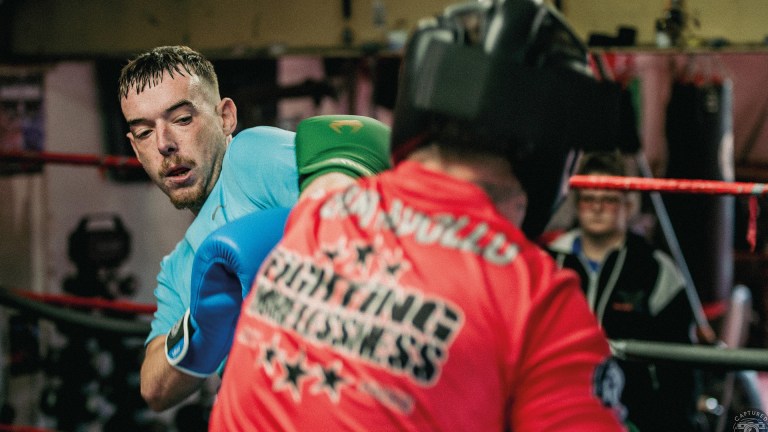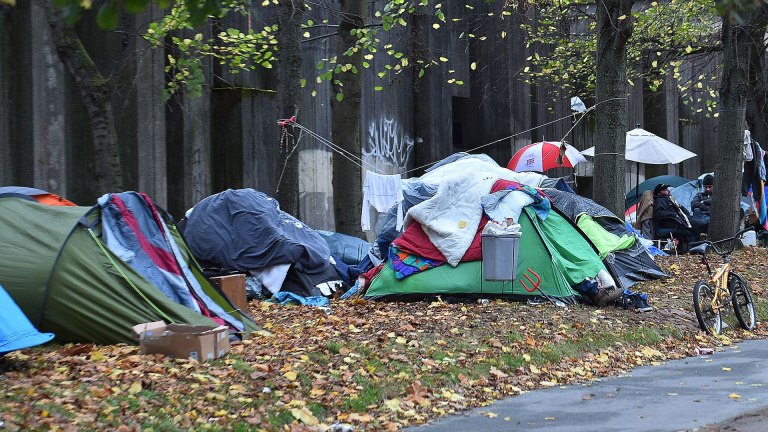The new charge will be applied annually to homes placed in four price bands. Homes worth £2m to £2.5m will be charged £2,500 per year, increasing to £7,500 a year for homes in the top band worth more than £5m.
But, unlike council tax, the cash the surcharge recovers will head to central government rather than sitting with local authorities.
The government have portrayed it as a rebalancing of property inequality. But for debt and housing justice campaigners, it’s a “missed opportunity.”
Heidi Chow, executive director of Debt Justice, described the policy as a “welcome infusion of cash into strained local government finances”.
But she was quick to caveat: “It does absolutely nothing to alleviate pressures for low-income households, who make up the vast majority of people in council tax debt.
“The government should have taken bold action to replace the outdated and regressive council tax with a proportional property tax to address the build-up of £8bn of unaffordable council tax debt.”
Advertising helps fund Big Issue’s mission to end poverty
Council tax is currently charged based on valuations on properties carried out more than three decades ago in 1991. It is regressive, meaning lower-income households pay a larger share of their income than higher-income households.
In the 2020-21 financial year, for example, the poorest fifth of households in the UK spent 4.8% of their gross household income on council tax – compared with just 1.5% for the richest fifth. The richest have seen the value of their properties skyrocket.
The policy is an administratively complicated “half measure,” said Faiza Shaheen, executive director of Tax Justice UK.
“Taxing the biggest properties is obviously not a bad thing,” she told Big Issue. “But it will only raise £400 million – that’s not huge in the scale of things, it won’t raise the money that the government needs to fix public services. So why this and not other wealth taxes, like on capital gains tax, that could make a real difference?
“Secondly, it’s really difficult from an administrative perspective. Because they’re not going to revalue all of the housing stock, which needs to happen. They’re just taking the top bands. It adds more complexity to an already deeply complex and unfair system.”
The Local Government Association expressed concern about where the money generated by the tax would go, given that it will be funnelled into central government coffers.
Advertising helps fund Big Issue’s mission to end poverty
“The founding principle of council tax is that it is a locally accountable tax which has always existed to fund local services,” said Councillor Pete Marland, Chair of the Resources Committee at the Local Government Association.
“Any additional funding raised through the council tax system must be available to support local authorities, particularly in the context of the current financial pressures they face, and we wait to see how government intends to use this funding to specifically support local services.”
There has been speculation in the months ahead of the budget that the government may look to reform property taxes while oppposition leader Kemi Badenoch pledged to scrap stamp duty.
The policy is mere “tinkering around the edges,” said Abi O’Connor, a sociologist who researches housing inequality, local government and urban politics at the University of Sheffield.
O’Connor argued that the measure distracts from the widely recognised need to overhaul the entire property tax system.
“We have an incredibly regressive system,” she said. “The rates haven’t been re-valued since 1991, despite houses in the South East shooting up in value.
Advertising helps fund Big Issue’s mission to end poverty
“People in the North West and the North East are paying substantially more than people who own actual mansions in London.”
Instead of a narrow levy on high-value homes, O’Connor argues for a full shift to a proportional property tax, with rates tied to up-to-date market values.
“It would be revalued annually so we don’t get into the situation we’re in now,” she said.
O’Connor favours a progressive, sliding-scale design: “A flat 0.48% rate still hits someone in a £100,000 house in Liverpool really hard. It should be a sliding scale so those with significantly greater assets pay more.”
Revenue from council tax in higher-value areas should then be redistributed to councils more in need.
“Across the political spectrum, there is agreement that the system needs reform,” she added.
Advertising helps fund Big Issue’s mission to end poverty
Where this consensus shatters is – perhaps predictably – the high-end property lobby. Industry figures have decried today’s tax, warning that it risks paralysing the upper end of the market.
Nigel Bishop, founder of buying agency Recoco Property Search, called it “an outright punishment” that could trigger “financial ruin” and “grind the property market to a halt”.
James Nightingall, founder of London property tech platform HomeFinder AI, argued that many owners are “asset rich but cash poor and will struggle to finance an annual levy of this magnitude”.
Matthew Thompson, head of sales at Chestertons Estate and Letting Agency, added that the policy could deter buyers altogether, leaving “more high-value properties standing empty and force sellers to drastically reduce their asking price”.
When Big Issue puts these claims to O’Connor, she joked: “World’s tiniest violin comes to mind.” She suggested some people may look for ways around the policy by, for example, having their house valued at £1.999 million.
“Some of their critiques are actually ironically legitimate, but only because this is such a badly thought-through policy,” she said.
Advertising helps fund Big Issue’s mission to end poverty
For O’Connor, the real problem is political timidity to shift the status quo and tackle inequality.
“They’ve chosen to circumvent a reform that everyone agrees needs to happen,” she said. “It’s just tinkering around the edges. Councils are on their knees, people in the poorest areas are in council tax arrears, and regional inequality keeps getting worse. They had the opportunity to change a system that is fundamentally broken – and they chose not to.”
Do you have a story to tell or opinions to share about this? Get in touch and tell us more.
Change a vendor’s life this Christmas.
Buy from your local Big Issue vendor every week – or support online with a vendor support kit or a subscription – and help people work their way out of poverty with dignity.





